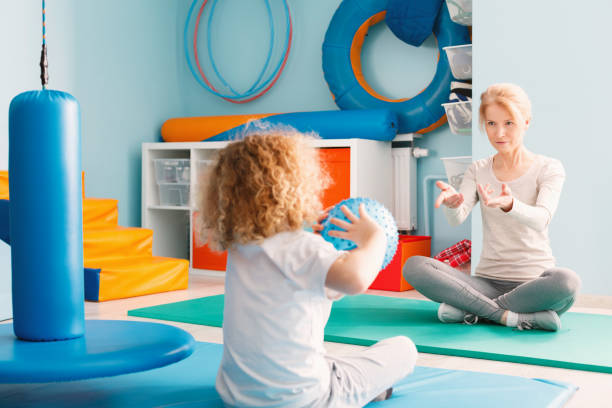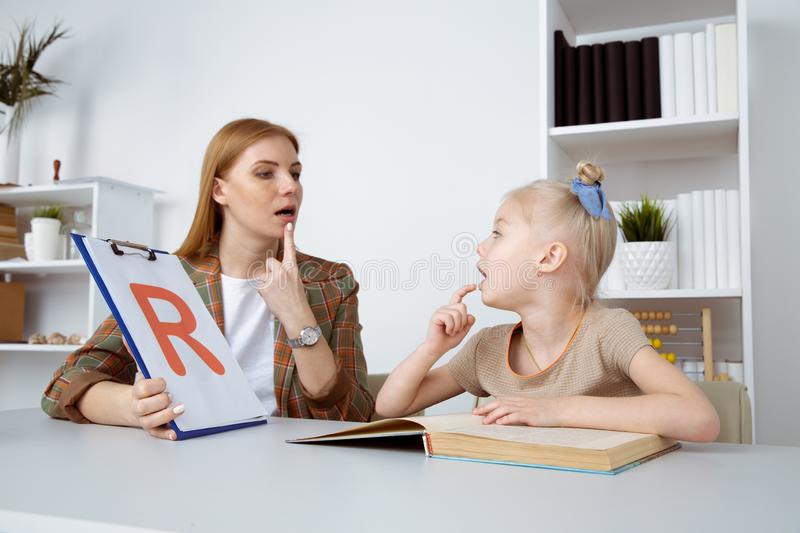SERVICES
FIND OUR SERVICES BELOW

Occupational Therapy
This type of treatment can help if you have pain,injury,illness,or a disability that makes it hard for you to do your job or schoolwork, care for yourself, complete household chores, move around, or take part in activities. Occupational therapy(OT) teaches you how to adapt. It can help you perform any kind of task at school,work,or in your home
SENSORY INTEGRATION THERAPY
Highly trained Beaumont Children’s occupational therapists are trained to provide children with advanced sensory integration therapy. As part of Beaumont’s Center for Children’s Rehabilitation, we help children throughout Southeast Michigan reclaim the ability to enjoy childhood through customized treatment techniques and exercises.Through individualized care plans using the most advanced techniques available, our occupational therapists assist these children in gaining functional skills for play, school tasks and other daily activities.WHAT CHILDREN MIGHT BENEFIT FROM SENSORY INTEGRATION THERAPY?
Sensory integration therapy may be beneficial to children with a number of conditions, Including:- Social or emotional problems
- Activity Level that is unusually high or low
- difficulty with transitions from one situation to another
- Inability to calm self or unwind delays in speech, language or motor skills
- Delays in speech,language or motor skills
- Delays in Academic Achievement
Sensory Integration Therapy May Include helping these Children overcome Symptoms Such as being:
- Overly Sensitive to touch,movement,sights or sounds
- Under-reactive to touch,Movement,Sights or sounds
- Easily distracted Impulsive or Lacking self-control
WHAT ARE THE BENEFITS OF SENSORY INTEGRATION THERAPY?
Benefits Of Sensory Integration Therapy May Include:- Modulation Of Sensory Systems
- Self-regulations
- Improved Function in School, home and Community
- Improve Independence with activities of daily living(ADLS)
- Maximized Functional ability to Perform daily and recreational activities
- Daily and recreational activities
- Enhanced motor planning ability
- Active Involvement and exploration of environments
- Efficient Organization of Sensory Information
- Related Beaumont Children's Hospital Offerings include programs in therapeutic listening, Interactive metronome and handwriting
Sensory Integration Therapy Assessment:
We offer a variety of assessments to determine specific sensory needs of each child and to evaluate their functional performance at home, school and in the community. This includes standardized testing, Observation therapists and an evaluation of Medical, development and Sensory histories.Our Therapists Work With Parents, schools and community personnel to help each child reach his or her goals. Treatment emphasizes improved sensory motor integration to develop overall functionality for self-care and school skills.FINE MOTOR SKILLS
Fine motor skills involve the use of the smaller muscle of the hands, commonly in activities like using pencils, scissors, construction with Lego or Duplo, doing up buttons and opening lunch boxes. Fine Motor skill efficiency significantly influences the quality of the task outcome as well as the speed of task performance. Efficient fine motor skills require a number of independent skills to work together to appropriately manipulate the object or perform the task.BOOK AN ASSESSMENT FOR YOUR CHILD
What Skills do 'Fine Motor skills' Include?
- Academics skills including
- Pencil Skills Including(Scribbing,Colouring,drawing,writing)
- Scissors Skills(Cutting)
- Play
- Construction skills using lego,duplo,puzzles,train tracks
- Doll dressing and manipulation
- IT use(eg: mouse and stylus manipulation)
Self Care Including
- dressing-tying shoelaces, doling up Sandals,Zips,buttons,belts
- eating-Using cutlery, opening lunch boxes and food bags
- Hygiene-Cleaning teeth, brushing hair,toileting.
Note: Visual Perception(accurately Using vision, ‘Seeing’ and interpreting) is not strictly a fine motor skill but directly supports fine motor skill performance.
WHY ARE FINE MOTOR SKILLS IMPORTANT?
Fine motor skills are essential for performing everyday skills as outlined above as well academic skills. Without the ability to complete these every day tasks, a child’s self esteem can suffer, their academic performance is compromised and their play options are very limited. They are also unable to develop appropriate independence in ‘life’ skills (Such as getting dressed and feeding themselves) which in turn has social implications not only within the family but also within peer relationships.HOW CAN YOU TELL IF A CHILD HAS FINE MOTOR SKILL DIFFICULTIES AT A GLANCE?
Avoidance and/or disinterest of fiddly finger skills(and has tasks listed above) Preferring Physical activity (again to avoid sit down tasks) Interest in ‘Passive’ activities such as IT (eg: Watching tv an IPAD that don’t require fine motor skills).No interest in Pencil or Scissors skills Bei ‘draw a catting ‘bossy’ in play and asking others to “draw a cat for meant persisting in the face of a challenge (eg: asking parents to fix a problem without physically trying to fix it themselves) Waiting for parents to dress them or clean their teeth rather than trying themselves .Refusal to use stylus with the IPADGROSS MOTOR SKILLS
WHAT ARE GROSS MOTOR SKILLS?
Gross motor (physical) skills are those which require whole body movement and which involve the large (core stabilizing) muscles of the body to perform everyday functions, such as standing and walking, running and jumping, and sitting upright at the table. They also includes eye-hand coordination skills such as ball skills (throwing, catching, kicking) as well as riding a bike or a scooter and swimming.WHY ARE GROSS MOTOR SKILLS IMPORTANT?
Gross motor skills are important to enable children to perform every day functions, such as walking and running, playground skills (e.g. climbing) and sporting skills (e.g. catching, throwing and hitting a ball with a bat). However, these are crucial for everyday self care skills like dressing (where you need to be able to stand on one leg to put your leg into a pant leg without falling over) and climbing into and out of a car or even getting into and out of bed. Gross motor abilities also have an influence on other everyday functions. For example, a child’s ability to maintain appropriate table top posture (upper body support) will affect their ability to participate in fine motor skills (e.g. writing, drawing and cutting) and sitting upright to attend to class instruction, which then impacts on their academic learning. Gross motor skills impact on your endurance to cope with a full day of school (sitting upright at a desk, moving between classrooms, carrying your heavy school bag). They also impacts your ability to navigate your environment (e.g. walking around classroom items such as a desk, up a sloped playground hill or to get on and off a moving escalator). Without fair gross motor skills, a child will struggle with many day to day tasks such as a eating, packing away their toys, and getting onto and off the toilet or potty.BOOK AN ASSESSMENT FOR YOUR CHILD
WHAT DO DIFFICULTIES WITH GROSSMOTOR SKILL DIFFICULTIES COMMONLY LOOK LIFE?
Children with gross motor difficulties commonly display:
Avoidance or general disinterest in physical tasks Rush task performance of physical tasks (to mask difficulty or fatigue) Silly task performance of physical task they find challenging Bossiness in telling others how to do the physical task or play the game without actively engaging themselves
Speech & Language Therapy
Helping children speek , communicate and understand language- Expressive and Receptive Language
- Speech and Language Developmental milestones
- Articulation/Intelligibility
- Speech Fluency
- Pragmatics & Social Skills
- Literacy and vocabulary
- Apraxia of speech
- Augmentative and Alternative communication
- feeding and Oral Motor

Physical Therapy
Children grow rapidly, and injuries and illnesses are sometimes unavoidable. Other children may have or may develop conditions that involve longer term treatment. Physical therapy may be an option for treating both injuries and other conditions. , the conditions it can help, and safety precautions to keep your kid healthy and happy.

Psychotherapy & Counselling
We Offers any form of treatment for Psychological, emotional or behavior disorders for the Purpose of Modifying or removing existing Symptoms and promoting Personality grow
Adolescent Counselling
Adolescent is one of the important stage of human development. During this period, people faces many physical & psychological changes to which they often struggle to accept and manage . We offers Support for adolescents for…following- Anger Managment
- Annciety
- Academic Difficulties
- Behavioural & emotional problems
- Body Image Issues
- Depression
- Drugly Alcohol Concerns
- Eating Disorders
- Fammily Conflict
- Interpersonal Conflict
- School refusal & Disengagemant
- Self harm & Suicidal attempt
- Sleep Problems
- Social Isolation

Behavior Therapy
Behavioral therapy is an umbrella term for types of therapy that treat mental health disorders. Psychological Assessment we are equipped with major psychological tests to identify, diagnose and treat childhood disorders like Intellectual Developmentaldisorders,Autism,ADHD,Learning disability etc... This form of therapy looks to identify and help change potentially self-destructive or unhealthy behaviors. It’s based on the idea that all behaviors are learned and that behaviors can be changed. In behavior therapy we covers,behaviour modification,parent management training(PMT),social skill training, ADL, cognitive development and follow up.

Special Care & Education
We have Special programmes for Autistic children with 1:1 care and monthly assessment with ADL Training Programme aiming inculssive education. Our programmes are interwoven with Craft, Yoga, Art Therapy, Social Skill Trainings and Floor time.

Art & craft Therapy
Art therapy is an integrative mental health and human services profession that enriches the lives of individuals, families, and communities through active art-making, creative process, applied psychological theory, and human experience within a psychotherapeutic relationship. .

Day Care
supervision of and care for special Needs children that is provided during the day by a person or organization .The general purpose of child care is to provide a secure environment to the children. Explanation: The childcare setting should be arranged with healthcare and infection control as a priority.

Remedial training
This program develops phonemic awareness for competence in reading, spelling, and speech. Weak phonemic awareness can cause problems in spelling and decoding, when students may add, omit, substitute, or reverse sounds and letters within words.

ABA Therapy
Applied Behavior Analysis (ABA) is a type of therapeutic intervention that can improve social, communication, and learning skills through reinforcement techniques. In addition to improving general adaptive behaviours, such as social skills, learning skills, etc.
